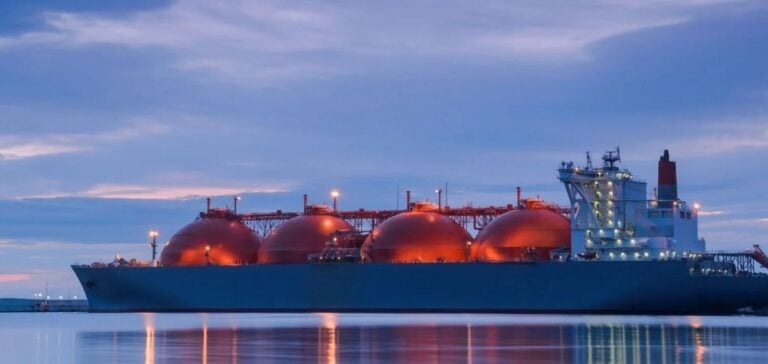The global liquefied natural gas (LNG) market is entering a phase of heightened competition, driven by steadily growing demand over the next five to ten years. According to Egbert Laege, CEO of SEFE (Securing Energy for Europe), this trend underscores the urgency for Europe to maintain its energy competitiveness. Speaking at the World LNG Summit in Berlin, Laege noted that the energy crisis triggered by Russia’s invasion of Ukraine in 2022 is far from over.
Thanks to rapidly implemented LNG import infrastructure, particularly in Germany, the continent has managed to diversify its supply sources and mitigate price volatility risks. However, this adaptation comes at a high cost for European economies.
A Highly Competitive Global Market
Egbert Laege emphasized that Europe, although significant in the LNG market, is just one of many players in a global competition. Asian demand, in particular, remains strong and continues to surpass European spot market prices. The Japan Korea Marker (JKM) price for deliveries in Northeast Asia was assessed at $14.81/MMBtu on December 9, compared to $13.74/MMBtu for European markers, according to S&P Global Commodity Insights.
This disparity reflects exporters’ geographic priorities and the necessity for Europe to ensure its energy security through competitive policies. “The world is not waiting for Europe,” Laege stated, calling for greater vigilance against these dynamics.
Demand Growth Projections
Global demographic and economic growth is fueling massive LNG demand, supported by the energy transition and the role of liquefied gas in decarbonization. Forecasts indicate that this demand could more than double by 2050. U.S. production, along with contributions from the Middle East and Australia, is expected to play a major role in meeting this growing demand.
For Europe, these developments highlight the importance of maintaining a strong industrial strategy. A report by Mario Draghi, former Italian Prime Minister and European Central Bank President, published in September, called for strengthening Europe’s collective capacity, particularly through increased collective bargaining. The report criticized the current lack of coordination, which leaves the EU vulnerable to spot price fluctuations and global market volatility.
Strategic and Economic Challenges
Integrating LNG into Europe’s energy strategy is essential to meeting goals for energy security and reducing dependencies. However, European competitiveness continues to be tested by high costs and more agile Asian and North American markets.
Experts are calling for enhanced cooperation initiatives and infrastructure optimization to minimize the impact of market volatility. Europe’s ability to address these challenges will be decisive in securing its role in the global energy market.






















